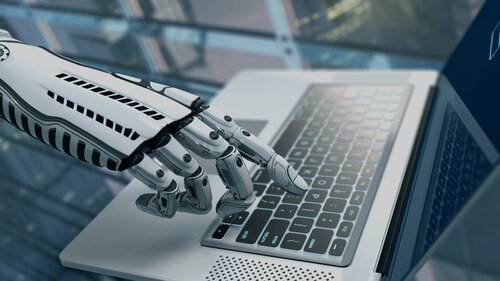5 Ways Robotic Process Automation (RPA) Drives Enterprise Level Innovation

The fact that robotic process automation drives innovation is the main reason why it is viewed as one of the supporting pillars of digital transformation across industry sectors, both digitally savvy (e.g., IT, media, telecom) and more traditional ones (e.g., automotive, infrastructure, pharmaceuticals).
However, although many organisations are attracted to undertake digitisation by its promised benefits, not all of them actually succeed in the long term. In fact, according to a recent McKinsey Global Survey, only 16% of organisations have experienced successful digital transformations in the sense of achieving the goal of improved performance and sustaining the changes for extended periods of time.
The good part is that the survey findings make it clear which are the practices that lead to durable success: leadership, capability building, empowering workers, upgrading tools, and communication. So based on these past fruitful experiences, you can tailor your own approach in a way that maximizes the likelihood of favourable outcomes.
It is important to acknowledge the fact that RPA drives enterprise level innovation. By freeing employees from the burden of repetitive, tedious, routine tasks such as data entry or payroll management, software robots enhance job satisfaction and thereby make a significant contribution to a more engaged workforce.
A relevant consequence of higher engagement levels is the reduction in the number of errors. Since errors have a domino effect and it is quite likely that they propagate extensively across the workflow, error reduction streamlines the entire delivery cycle.
Therefore, by fostering more committed workers and thus downgrading the risk of error, the use of RPA takes a positive effect at the enterprise level.
How does robotic process automation drive enterprise level innovation?
Let’s follow our preferred pragmatic approach, and substantiate the claim that RPA drives innovation by looking at some of the actions that are likely to cultivate your company’s modernisation. We will emphasize that the innovative effect of software robots is observable at the level of the whole company.
1. Reorganising information systems and business processes
Given that the first step of the automation journey is the selection of automatable processes, RPA implementation fosters a re-analysis of business processes. Subsequently, it enables the flow of digital information across all the departments of your organisation where it is utilised.
By doing this, RPA coordinates multiple systems with the real information needs of the selected business processes. All in all, the methodology that underpins RPA strengthens the digitisation of the core business model by aligning the newly introduced digital aspects with the existing information system.
2. Allowing small and medium businesses (SMBs) to sidestep legacy system issues
Legacy systems don’t fare well handling data, the main asset of a 21st century business, effectively. Because these systems work only with data grouped in silos, employees’ access to the bigger picture is hindered, and all users must be granted access to data, thereby raising security risks. In fact, information silos point out that your business could benefit from robotic process automation.
Moreover, the replacement of legacy systems is very costly and poses significant risks to data migration. All these issues are even more challenging for SMBs, in their continuous effort to rival large enterprises or global corporations. The use of software robots to collect information from disparate systems like ERPs or CRMs is a worthwhile quick-fix to SMBs facing this problem.
RPA implementation in small and medium businesses is easier when you use a product created to address your specific needs, such as the CiGen fleet of RPA Robots for Hire.